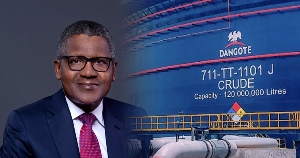World Bank has said developing counties including Nigeria have huge investment needs due to their inadequate infrastructure and other challenges.
As such, the Washington-based lender called on policymakers to create an environment conducive for investment and devoid of corruption.
The World Bank Group President, David Malpass, said these on Thursday in Niamey, Niger Republic as he delivered a speech titled ‘Growth and Stability During Crises’ at the Abdou Moumouni University of Niamey.
He said, “Developing countries have immense investment needs, given inadequate infrastructure, rapid urbanisation, and escalating climate costs. Capital inflows from abroad will have a role to play in financing these needs. But in these uncertain times, with widespread pressures from debt distress, countries will not be assured of foreign finance.
“The stability and efficiency of domestic financial markets should be at the forefront of policymakers’ efforts to meet domestic investment needs. The COVID-19 pandemic showed that a key attribute of a successful response to crisis was a diversified investor base.”
Malpass added, “This puts a premium on an environment that allows domestic savings to flow to productive private sector firms instead of being channeled to public deficits. This requires a pool of savings and access to domestic financial markets through an enabling environment that includes: regulations that facilitate the entry and growth of private firms; competition in domestic product and financial markets, including a level playing field with state owned enterprises and the government; transparent access to international markets; effective mechanisms to allow firms to exit when they fail; and clear policies and practices against corruption.”
While acknowledging that the steps are hard, Malpass said that they were achievable and necessary for private sector development.
Meanwhile, the World Bank boss expressed concerns for how the expected depreciation in the 2023 global trade will affect developing countries.
He said, “Not surprisingly, global trade is expected to shrink in 2023. If ongoing trends are maintained, they will severely undercut international commerce and the benefits that come from it. Slowing trade will create a headwind for the global economy and especially the poorest countries, which require access to global markets to achieve sustained economic growth and poverty reduction.”
Business News of Saturday, 1 April 2023
Source: punchng.com













